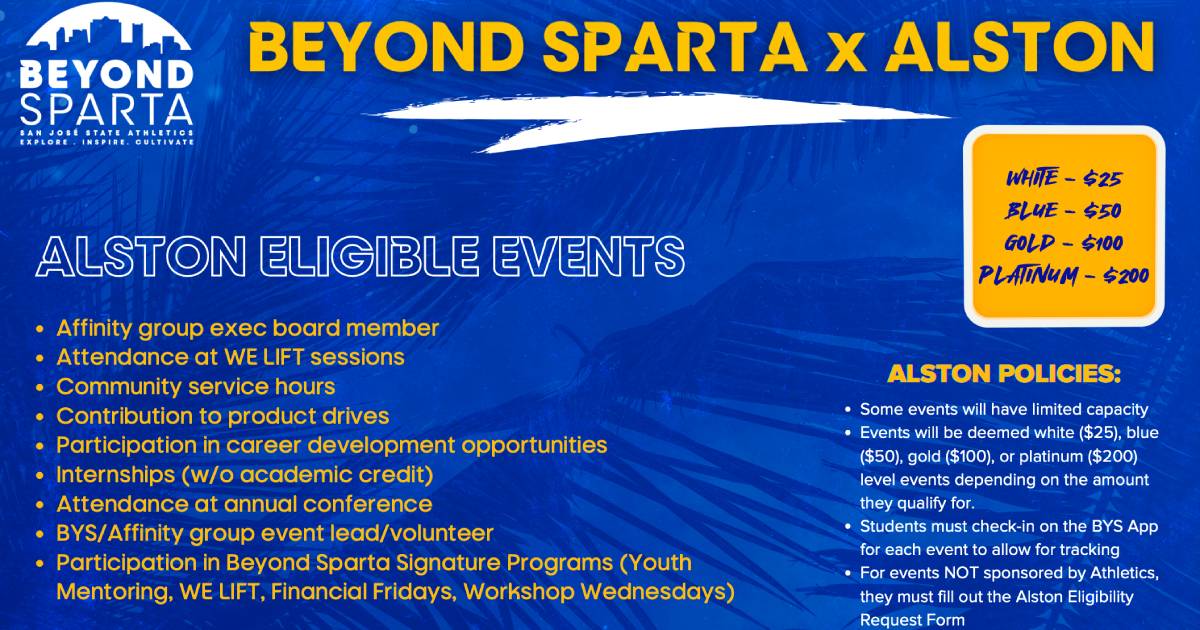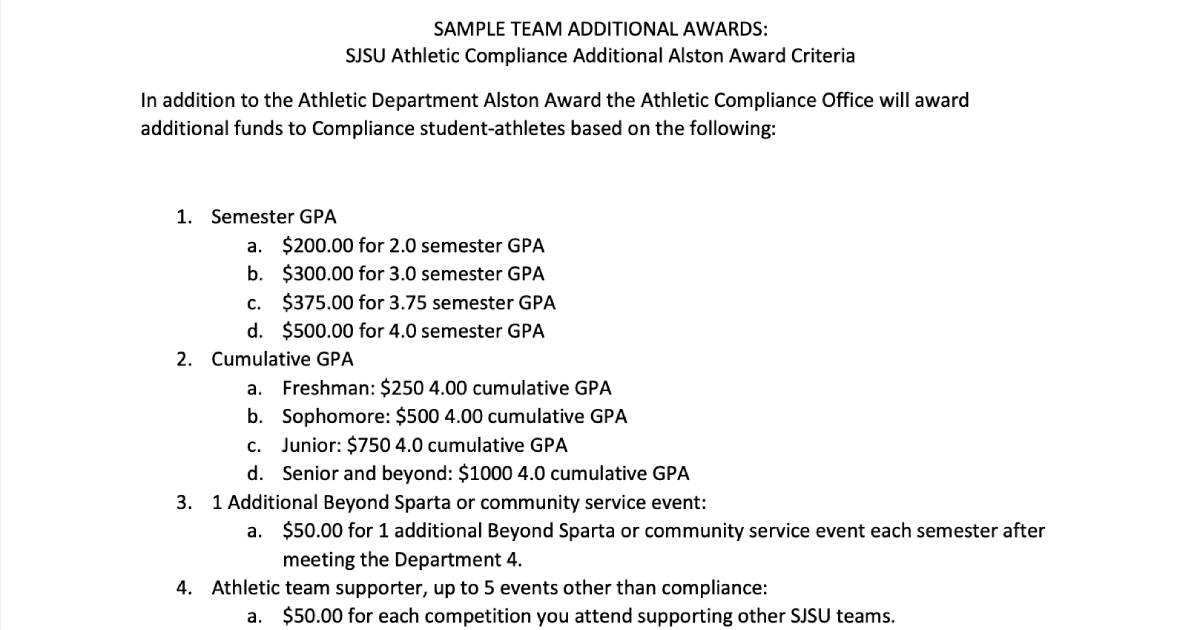San Jose State's Alston awards policy lets teams establish criteria

Starting in the 2022-23 academic year, San Jose State will provide eligible athletes with Alston awards, which are education-related financial payments, following the U.S. Supreme Court’s 9-0 ruling in NCAA v. Alston. On3 obtained a copy of San Jose State’s Alston awards policy through a public records request.
The amounts of the department-wide Alston awards outlined in San Jose State’s policy are lower than many other NCAA Division I institutions that offer Alston awards. However, the policy says that each athletic program can provide additional awards up to the maximum annual amount of $5,980 per athlete.
San Jose State’s Alston awards policy says athletes can earn $50 for each Beyond Sparta or community service event they attend per semester, up to four events. That’s $200 per semester or $400 per year.
Beyond Sparta is an initiative from San Jose State’s athletic department that helps connect athletes with campus and charitable organizations, as well as career and leadership development resources.
Another document says, however, that Beyond Sparta “events will be deemed white ($25), blue ($50), gold ($100), or platinum ($200) level events depending on the amount they qualify for.”

Eligible Beyond Sparta events include contributing to product drives, participating in career development opportunities or earning an internship that doesn’t involve academic credit. Athletes must complete a form that includes the date, location and description of each event, as well as get the signature of the Beyond Sparta director or a community service event coordinator.
“In addition, each team is permitted to provide additional awards, up to the legislated maximum, for their student-athletes,” the policy states.
Teams can offer additional awards
In order to receive Alston awards, as of the first day of each semester, San Jose State athletes must receive athletics-related financial aid, be a member of an active roster and eligible for practice and competition. As of the last day of the semester, they must be a member of an active roster and in good standing with the school, and have completed a Beyond Sparta or community service event.
Top 10
- 1New
Iowa State gambling
Staff members punished
- 2
Tennessee AD
Reacts to Texas roster cost
- 3Hot
2026 NFL Mock Draft
QBs dominate without Arch Manning
- 4
Second-guessing Sark?
Ewers-Manning decision in spotlight
- 5Trending
Fiery crash video
Alijah Arenas football surfaces
Get the On3 Top 10 to your inbox every morning
By clicking "Subscribe to Newsletter", I agree to On3's Privacy Notice, Terms, and use of my personal information described therein.
On3 also obtained a document that outlines sample criteria for additional awards established by an individual athletic team.
The document lists awards for both semester and cumulative GPA, such that athletes would earn $200 for receiving a 2.0 semester GPA, $300 for a 3.0 GPA, $375 for a 3.75 GPA and $500 for a 4.0 GPA. The cumulative GPA criteria would reward athletes for maintaining a 4.0 GPA, such that freshmen would receive $250, sophomores would receive $500, juniors would receive $750 and seniors would receive $1,000.

An individual team could also establish awards to athletes who participate in more than four Beyond Sparta or community service events in a semester. Another source of awards could be from attending the competitions for other San Jose State athletic programs.
The first sentence of the school’s policy says, in part, that athletes “will be eligible to earn academic and/or graduation incentive awards,” so some awards could be tied to graduation. Schools such as Iowa and Wisconsin will provide deferred awards tied to graduation through their respective Alston awards policies.
San Jose State isn’t the only university whose coaches play a role in their athletes’ Alston awards. Through the Alston awards policy at Illinois, Director of Athletics Josh Whitman and the university’s sport administrators establish an allotment of how many athletes in a given athletic program can receive Alston awards.
If a program’s roster size is larger than its allotment, then the head coach and sport administrator will decide which athletes are eligible for the awards.